Owning a cask of whisky has many benefits and advantages that other alternative assets don’t enjoy, but it does have a shelf life, and at some point, it has to be bottled. Gold or commodities for example have a ready-made market, and thus your exit is clear and straightforward. However, owning a whisky cask takes a little more strategy in both your entry and exit strategies. In this article, we are going to explore the five clear exit options that Cask Trade can offer so you the investor can fully understand what is right for you, and we will explain some of the nuances and pitfalls you may not have unearthed.
Before purchasing your cask there are a number of questions for you to consider; which distillery, what type of cask, what age of whisky, what is your budget, are you looking for a short, medium, or long-term hold? In terms of distilleries, the well-known ones are already quite expensive, which is partly due to the fact that huge investment has gone into building up their global brand equity. The value is in looking for the distilleries that are either the future rising stars, or are not currently being marketed. The quality of the whisky they are producing is just as good as the ‘big names’ and the Independent Bottlers all around the world are keen on purchasing these casks.
Whisky enthusiasts gravitate towards drinking single cask, unfiltered, unadulterated whisky, and this niche in the market is provided by these bottlers. They of course have their business model and margins, therefore, many look for high-quality but good-value whisky. This generally comes from the lesser-known distilleries. There are many unscrupulous brokers who are wildly inflating the prices and who cannot offer you five genuine exits, but with some careful due diligence, they can be avoided. Cask Trade is a stockist, meaning we own all the stock that we sell, and we offer the same price to trade as to private customers. We are also a fully UK licensed company and we'll be there at every step of the way on your journey, including when you are ready to cash in on your whisky. That being said, let's explore the five key exit strategies. 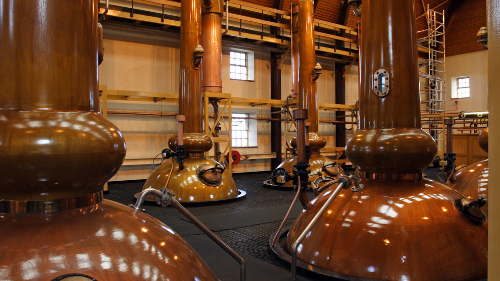
Exit No.1 – To sell the cask back to the company you bought it from - Cask Trade's Buy Back Guarantee This sounds like an easy option. Of course, you may think that the company you bought it from will be eager to buy that cask back from you. But will they? Firstly, do they have the cash flow? Is there a market demand for your cask? Do they have enough customers/bottlers to sell it to? Are they going to offer you a price for you to realise enough (any) profit? If the company has sold the cask to you at an already inflated price, it’s doubtful they are going to make you an offer. Of course, there is a possible happy outcome here; if you’ve paid a fair price, the cask has the potential to achieve a decent profit.
If market conditions have been favourable and you haven’t achieved any profit, then you’ve simply overpaid for your cask. At this point, you only have two options available to you. You either keep the cask, or sell it. To summarise, this is the easiest, most convenient exit strategy for many investors. Our advice to avoid the loss highlighted above is to always ask for proof or examples of how the casks have been bought back and resold in the past. The only way that successful investments are bought and sold is if there is an active marketplace.
Cask Trade is the only true marketplace globally that has an equal number of bottlers and private clients for the exit. We will make you an offer to purchase the cask back. This way, you are guaranteed a buyer, even at short notice - at 0% cost to you. Any company which cannot satisfy this important piece of criteria will not be buying your cask back from you. Finally, a myth needs to be dispelled. Distilleries DO NOT buy casks back. Why would a distillery buy back a cask at a huge loss to themselves when they have, in some cases, 100,000s of their own casks? Only a very old, very rare, cask from a famous distillery would even be considered. If you do happen to own a 50-year-old Macallan sherry butt in excellent health, then it might be worth contacting Edrington (Macallan owner). If not, then we doubt they'll give it the time of day. 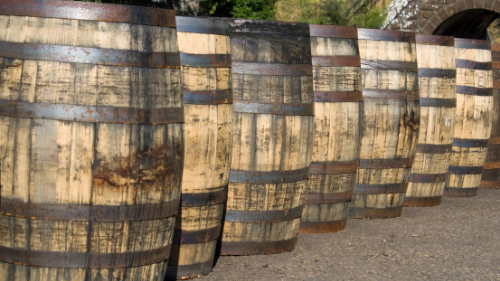
Exit No.2 – Cask Trade can re-sell the cask for you on our stock list In this scenario, we'll discuss the target price with you, and once agreed, we'll sell the cask for you at no extra cost, apart from a small charge for a regauge and sample. This will give a health check to your cask and the sample will tell us how the cask is maturing and how it is currently tasting. When setting your price, you may want to consider; are there are any similar casks on the stock list? What is the supply and demand of those casks? Is this the right time to list it? Whisky casks tend to be more desirable to bottlers when they reach the key milestone ages of 10/12/15/18/21/25 (if your cask is, for example, 16 years of age it might be worth holding on for another two years so it can be sold at 18 years).
At Cask Trade, we send our stock list to over 3500 customers globally. Half of these customers are Independent Bottlers, and so your cask on our list would gain exposure to a global audience of potential buyers. The real skill here is setting the right price. If you inflate the price too much, then the bottlers won’t be interested, and you are narrowing down the chances of being able to exit. Again, it’s only with a very old and rare cask that testing the waters with an inflated price might be worth the chance. This is by far the most common exit, and we have 100s of examples of casks we have bought back and resold. 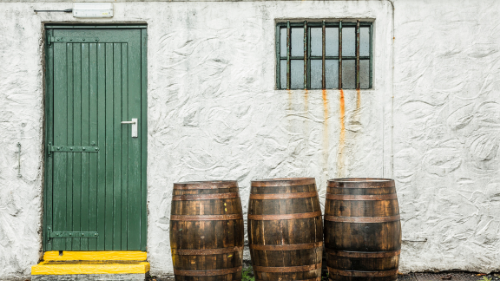
Exit No.3 – Auction Your Cask - This is an open, transparent option for your exit strategy. The process here is to pay for a regauge and sample and to set a reserve price. There is no other cost to the seller as we add on a 15% buyer’s fee. The advantage of an online auction is that the potential number of buyers is much higher and you’re casting your net much wider – in fact, it opens it up to the whole world.
However, there are a few questions you must ask; is your cask in a warehouse where others can take ownership? An auction is also in the public domain therefore this is not a discreet, private sale. Is this important to you? It is very different from a bottle auction as you are buying a product that you’ll probably never see and of course, it won’t be delivered to your front door. Many of the well-known bottle auction houses have failed at cask auctions as it is a very different dynamic and process. To reiterate, the person selling the cask(s) needs all the paperwork to transfer the ownership. Cask Trade has warehouse accounts all over Scotland to help this process. Anyone can buy and sell a bottle…It is not the same. 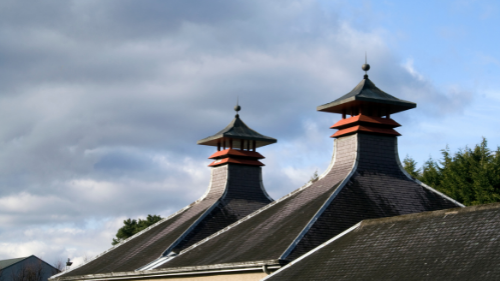
Exit No.4 – Bottle your cask Cask Trade can facilitate the bottling process using our new bottling service, Regent Street Cask Bottlers. This service is available upon request. Unless you have a license to retail whisky then bottling your cask is going to be purely for pleasure. Your option at this point is to either gift it, or drink it. You also might want to consider that a 10-year whisky matured in a sherry butt is likely to furnish you with 600-700 bottles. Beware - you’re going to get a very large delivery to your house! Generally bottling a cask for private consumption only works in the corporate gifting world, or for a celebration like a wedding or anniversary. You will be responsible for all the bottling, labelling, and design costs, plus all taxes and duties.
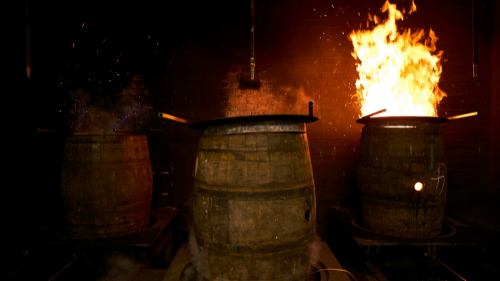
Exit No.5 – You can sell your cask to a third party You are free to sell the cask privately and Cask Trade can help you facilitate the sale, as long as the cask is held under our license. However, we would have to collect due diligence on the new owner and here we just would charge a nominal fee of £50 +VAT. As long as these conditions can be satisfied then it is a very simple process. When to exit? Once you have understood and considered the various options, your exit strategies should be used judiciously. To maximise your profit, it is very important that you exit at the time that is right for the whisky. On some occasions, you may want to test the marketplace and see what offers are available and then decide to continue longer on your ownership journey.
There are two limiting factor: 1) Ultimately all whisky does have to be bottled at some point, as it doesn’t go on forever. 2) It has to be of the right quality for the buyer. If the whisky is too young, then no Independent Bottler will be interested in bottling it, and if it has spent too long in the cask then it will taste of wood, which means it will have no value. Scotch whisky rules also dictate that whisky must be more than 40% ABV, and as the whisky matures it doesn’t just lose volume through evaporation (the angels share), but also alcohol strength. Therefore, if you have a very old cask and the ABV is in the low 40s then even if it still tastes very good, it will need to be bottled fairly soon.
To conclude – if you are investing in any alternative asset, it is not just about investing, but making your money work for you. Invest – take profit – invest again and so on. Our advice is to buy casks at different ages in different types of wood and from different distilleries. A versatile portfolio will then spread any risk and give you multiple exit points.
Therefore, it is important that you not only enter your investment with the right cask at the right price, but you invest with a company that can provide you with five, genuine, exit strategies and a real marketplace.
To find out more about whisky investment and purchasing Scotch Whisky casks, contact the Masters today. Keep up to date by following us on socials: Instagram, Twitter, Facebook, LinkedIn, YouTube.